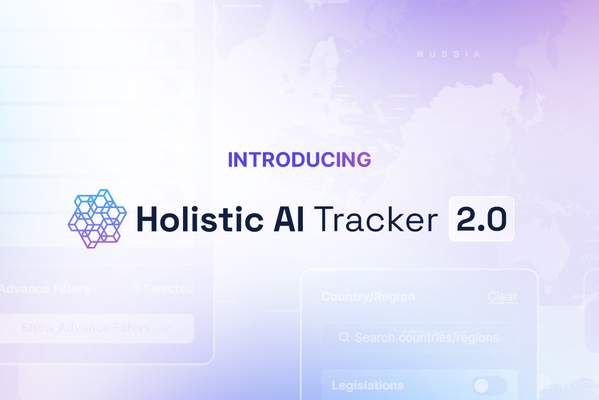February 2025

Yesterday, February 2, 2025, the first provisions of the EU AI Act went into effect, including those relating to AI literacy and prohibited systems. Prohibited systems include those that pose an unacceptable level of risk to fundamental rights, health, or safety, and penalties for their use can be up to €35 million or 7% of annual worldwide turnover. Providers and deployers of AI systems must ensure sufficient AI literacy for staff and agents. Compliance requires creating an inventory of AI systems, classifying them, and ensuring ongoing AI literacy training. Holistic AI offers a solution to simplify compliance with the EU AI Act.
January 2025

President Trump signed an executive order in January 2025 to remove barriers to American leadership in artificial intelligence (AI), emphasizing the need to solidify the US' position as a global leader in AI and to develop unbiased AI systems. To achieve its goals, the administration's AI policy vision will be developed and steps will be taken to de-implement President Biden's AI executive order. An AI action plan must be conceptualized and delivered, and the White House's Office of Budget and Management must publish a memorandum implementing the AI executive order by March 25th, 2025. The Trump administration also revoked President Biden's AI executive order and is reviewing federal agency actions taken under it to ensure consistency with the new policy. Despite the revocation of the Biden order, AI innovation and safety remain priorities for the US government.

US President Joe Biden issued an Executive Order (EO) to speed up the development of AI infrastructure in the US, prioritizing economic competitiveness, national security, AI safety, clean energy, and maintaining low energy prices for consumers. Federal agencies are mandated to lease federal sites, accelerate clean energy deployment, prioritize AI infrastructure permits, develop transmission lines, interconnect AI infrastructure to the electric grid, ensure low electricity prices for consumers, and further allies and partners' AI infrastructure development. Private developers are required to fully fund construction, operation, and maintenance of the AI infrastructure, and uphold strong labor standards and procure domestically manufactured semiconductors used to power AI.
November 2024

Holistic AI has launched the Holistic AI Tracker 2.0, which features an interactive world map called the Atlas to track activity across eight key areas. The Atlas has filters to help users drill down into specific regions, events and development sectors, with the ability to track changes and get notifications of updates. The AI Tracker is designed as a resource for the community and users are invited to suggest event additions for review by Holistic AI.
October 2024

The European AI Office has initiated the drafting process for the first-ever Code of Practice for general-purpose AI (GPAI) models under the EU AI Act. The Code of Practice will serve as a guiding framework to align with the stringent requirements of the Act and ensure compliance. Over 1,000 stakeholders are involved in the drafting process, which will span four rounds of reviews and consultations, with the final version expected to be published in April 2025. The Code of Practice provides guidelines for GPAI model providers to demonstrate compliance with legal obligations, including identifying and addressing systemic risks. If the Code of Practice is not ready or deemed inadequate by 2 August 2025, the European Commission may introduce common rules to ensure compliance with the AI Act.